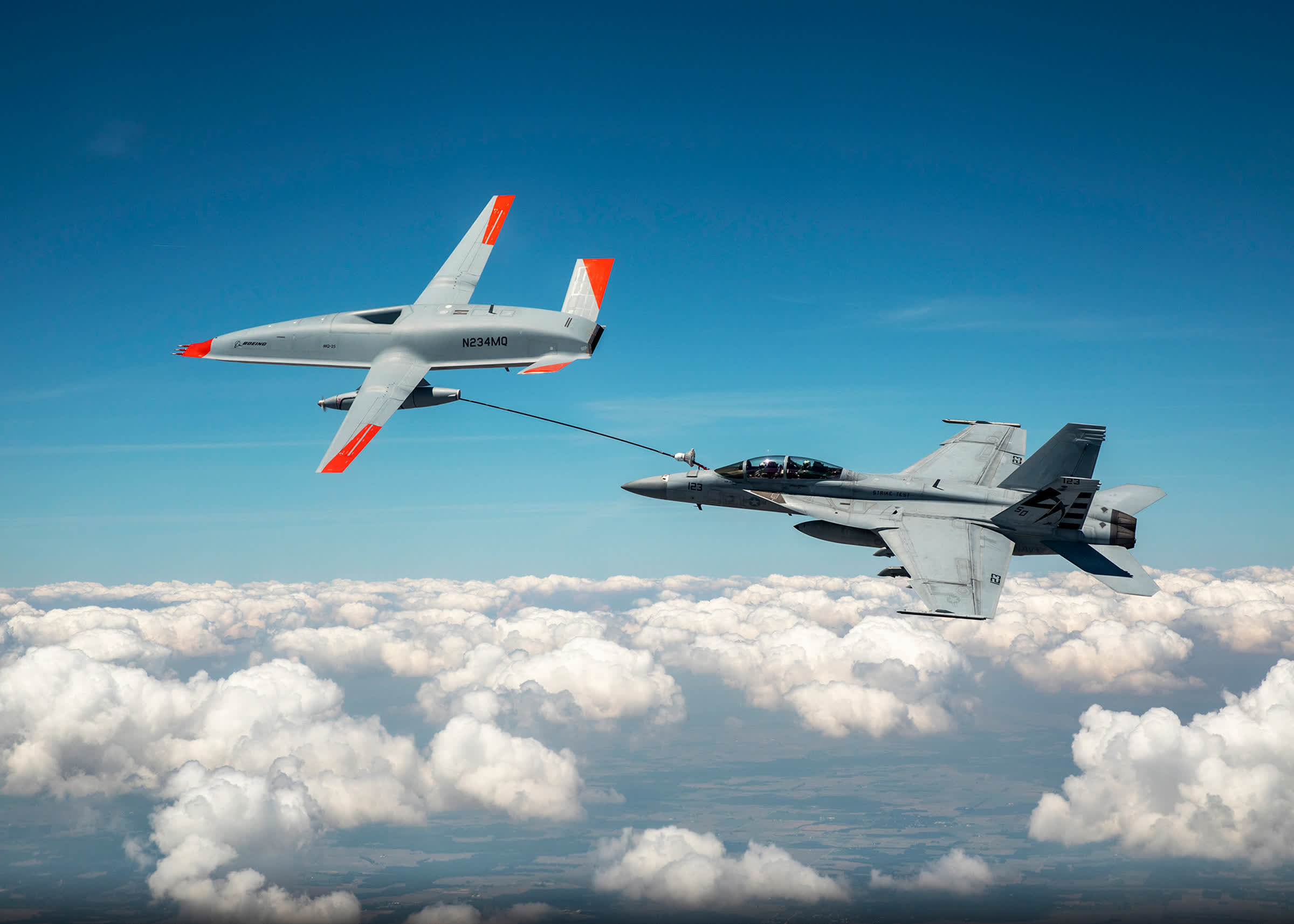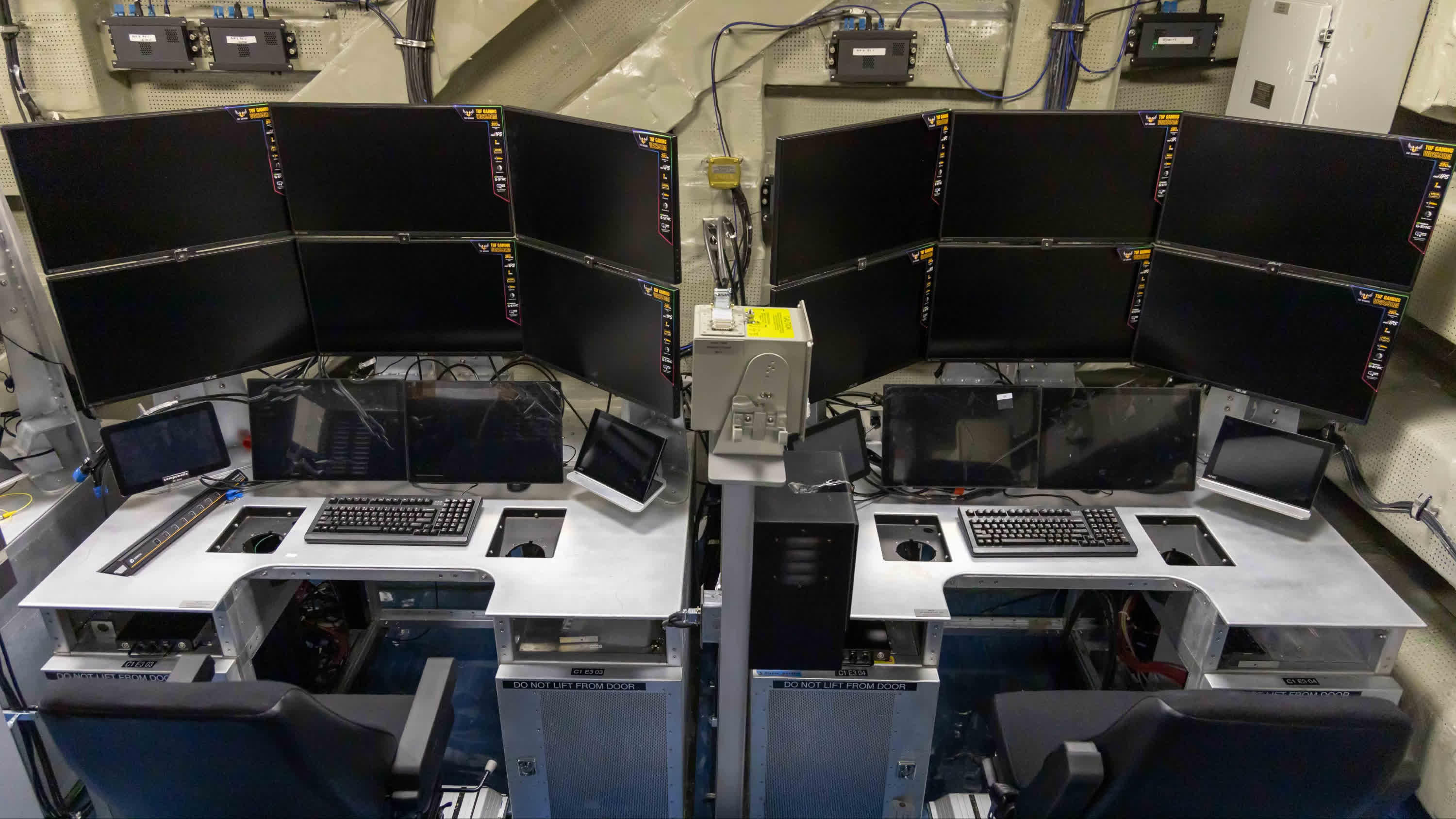In brief: After years of planning and integration work, the world's first Unmanned Air Warfare Center is now operational aboard the aircraft carrier USS George H.W. Bush. The UAWC is a specialized control room where Air Vehicle Pilots will remotely operate the Navy's upcoming MQ-25 Stingray unmanned aerial refueling tankers and other future drone aircraft.
The UAWC houses the hardware and software that constitute the Unmanned Carrier Aviation Mission Control System (UMCS), which is essential for commanding and controlling the MQ-25 during missions.
"CVN 77's UAWC lays the foundation for how the US Navy will operate and control unmanned aircraft, and perhaps other unmanned vehicles, with UMCS," said Unmanned Carrier Aviation (PMA-268) Program Manager Capt. Daniel Fucito. "These systems will initially support the MQ-25 but also future unmanned systems such as Collaborative Combat Aircraft that comprise the Air Wing of the Future."
At the core of the UMCS is the MD-5E Ground Control Station (GCS), powered by Lockheed Martin's advanced Multi-Domain Combat System software suite. The Navy developed the GCS by integrating Lockheed's technology with additional equipment and hardware installed in specialized racks and cockpits aboard the ship.

The UAWC installation was a multi-year endeavor that required coordination with multiple Navy program offices, systems commands, and shipyards. Teams had to seamlessly integrate the new unmanned systems into the carrier's existing networks and architecture.
"The support we received from all the organizations was incredible," said Gordon Carlon, acting PMA-268 UMCS CVN installation lead. "Our program is accomplishing things on a much faster timeline than any other normal start-up program."
Early next year, the Navy plans to conduct the first at-sea tests of the UAWC's operational networks. Pilots from Unmanned Multi-Role Squadron 10 will use the actual UMCS hardware and software aboard the USS George H.W. Bush to communicate with a simulated MQ-25 aircraft at a ground station.
The MQ-25 Stingray program is a joint effort between the Navy and industry partners Boeing and Lockheed Martin. Boeing developed the MQ-25 air vehicle, while Lockheed provides the critical control station and networking infrastructure for operations.
The MQ-25 is the first uncrewed aircraft to be deployed for operational service on the Navy's aircraft carriers. A fleet of 76 aircraft is planned to meet mid-air refueling needs, eventually replacing the F/A-18E/F Super Hornets currently used for this purpose.
Since Super Hornets are strike fighters, they must be diverted from combat sorties to perform refueling. Using MQ-25s for refueling will ensure higher availability of strike fighters for combat operations.
